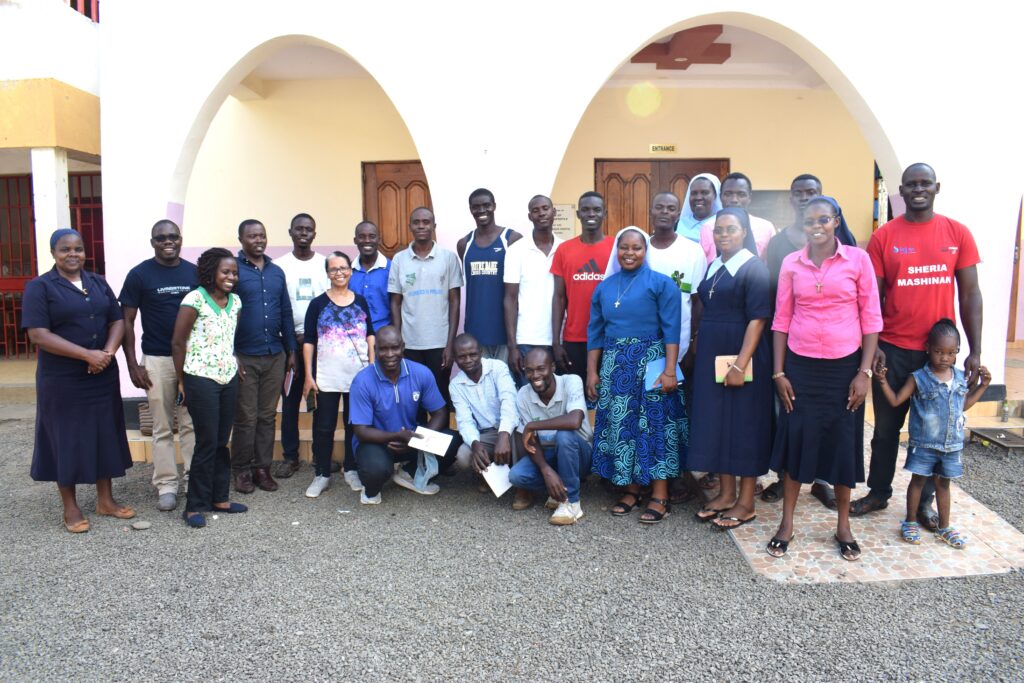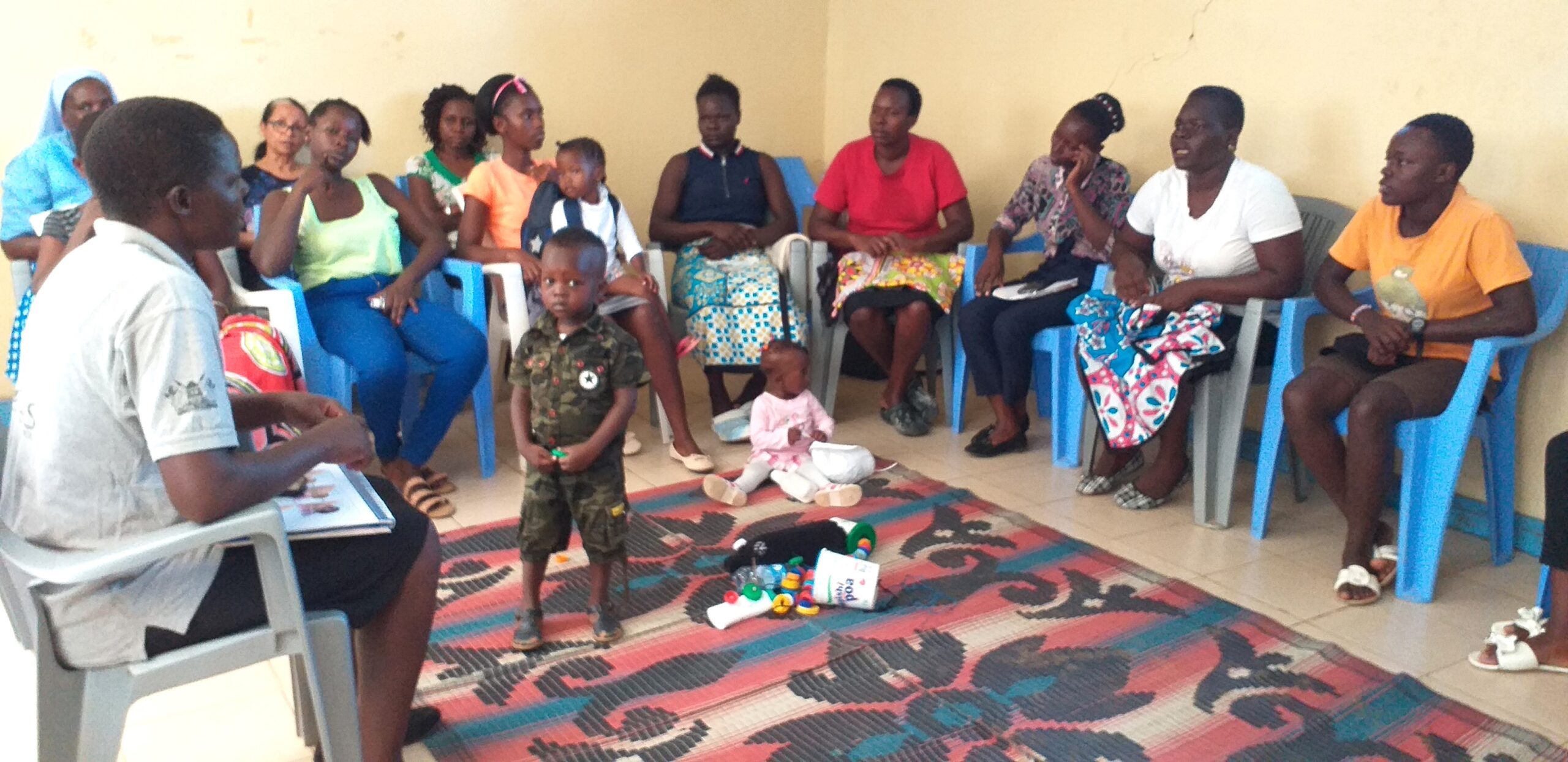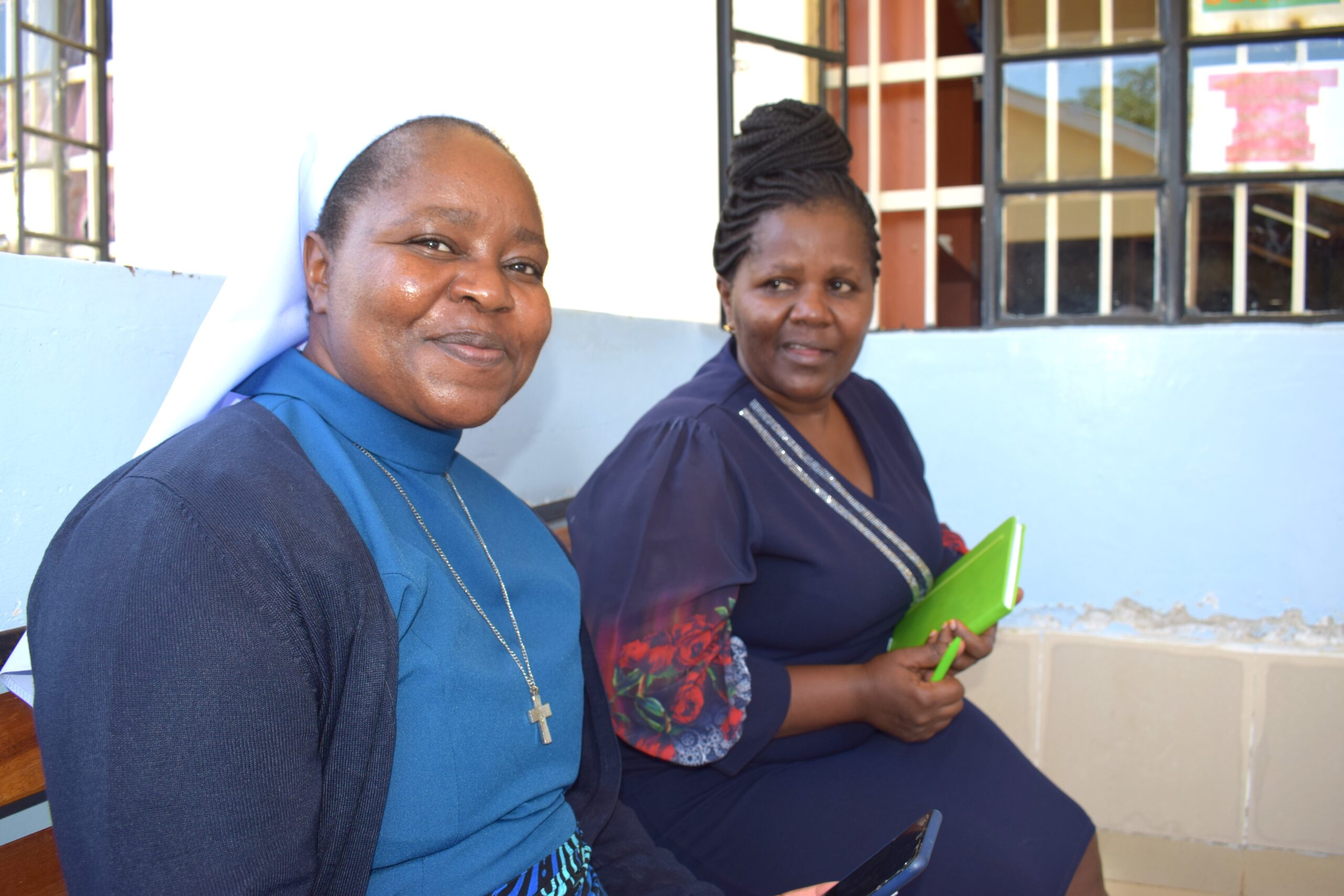ACWECA: Catholic Sisters Commend Catholic Relief Services

Group of CRS partners and beneficiaries
Sr. Helen Kasala
The Association of Sisterhoods of Kenya (AOSK) in partnership with CRS established a collaborative project dubbed SCORE ECD that aims at enhancing Sisters’ capacities to positively impact the lives of the children they serve. The project is implemented in four countries namely; Kenya, Malawi, Zambia, and Ghana through the National Association of these countries which is coordinated by ACWECA.
In Kenya, this project is implemented through AOSK and with 10 Congregations with the intent to be better positioned to continue and expand quality Early Childhood Development interventions in the future.
Sr. Joyce Nyagucha from the congregation of the Assumption Sisters of Eldoret is the SCORE ECD Program Manager for the Association of Sisterhoods of Kenya. SCORE-ECD stands for Strengthening the Capacity of Women Religious in Early Childhood Development.
This project dates back to its establishment in Kenya in 2014 and is funded by Conrad Hilton through Catholic Relief Services (CRS). The project is in its 3rd phase and the main goal is that children aged 0-3 years in Kenya live in a nurturing environment. It rides on three objectives; Sisters deliver nurturing care and family-strengthening services to caregivers of children aged 0-3, Caregivers of children aged 0-3 years old provide their children with nurturing care and National association and congregations have strengthened organizational capacity.
The project uses the nurturing care framework model focusing on the five components; responsive caregiving, safety and security, opportunities for early learning, adequate nutrition, and good health. It also has the family strengthening component through SMART Couples and household economic strengthening using Saving and Internal Lending Communities (SILC)
The Association trains sisters who reach out to the caregivers with key messages in WASH, infant, and young child feeding behaviors, key health care seeking behavior, adoption of key early stimulation and positive parenting behavior by pregnant and lactating women and primary caregivers, IMBC (Integrated Mothers Babies Course) curriculum that supports caregivers to manage their internal and external realities (mood management) to be able to care for their children.

The Association also trains the sister congregations on resource mobilization and management. There is also networking and advocacy for high-quality ECD programs, all intended to assist sisters assume ownership of ECD services.
Sr. Nyagucha, the program manager admits that the project has cultivated Capacity building for the sisters through training in the curriculum to offer professional performance.
After training, Sisters have been able to train community health volunteers and care group volunteers (lead mothers) who are in turn training caregivers to be well equipped with the knowledge and skills in ECD.
Testimonies from caregivers show that children born after undertaking this training are very different from the elder ones born before the program due to early stimulation and provision of holistic care. Fathers have embraced the project and are very supportive of their wives in terms of accompanying their partners to the health facilities, developing play materials, and playing with their children, ensuring clean and safe environments. There is improved communication and joint decision-making among partners.
According to Sr. Nyagucha, hygiene and cleanliness in the homesteads with a care green environment has greatly improved the health of children and their families with reduced illnesses. Caregivers are able to use the available resources to start small income-generating activities rather than expecting to start with much money.
“There are improved relationships among partners compared to the past before the training. After the Smart couple training, married partners can now freely share ideas, make decisions together and there is mutual respect.” Sr. Nyagucha noted.
Sr. Joyce noted that through Holistic Organization Capacity Assessment Instrument (HOCAI) the National Association (AOSK) and congregations have embarked on their journey to sustainability. The HOCAI tool which is developed by CRS for its partners has assisted congregations to be self-sustaining through conducting self-analysis, identifying gaps developing action plans based on priority areas perceived to be weak as they continue improving and maintaining the strong areas.
Congregations have been able to develop policies and strategic plans to guide their implementation plans, two congregations have been supported to develop an M&E system, which is helping them to monitor congregational activities for proper and timely decision-making. In addition, congregations have been able to network for knowledge sharing through exchange visits and online mentorship.

“We have been able to collaborate and work with the County and National government. At the county level, they are able to join us whenever we invite them to support the work we do on the ground. AOSK is a member of the National ECD Network where I sit as a board member on behalf of the Association. This forum has provided us an opportunity to participate in leadership, decision making, and giving our voice on policy issues” Sr. Nyagucha said.
Just like any other project, the SCORE ECD faces challenges. Caregivers expect to receive incentives from the project as other project implementers do on the ground leading to less turn-up. We have continued to encourage the caregivers to attend sessions that will provide knowledge and skills which are sustainable. In addition, we have encouraged them to join SILC groups (Savings and internal lending communities) as well starting small income-generating activities.
Now Sr. Nyagucha is proud of the project because it has, empowered Sisters, transformed lives, and given the association platforms to voice and share their stories.


